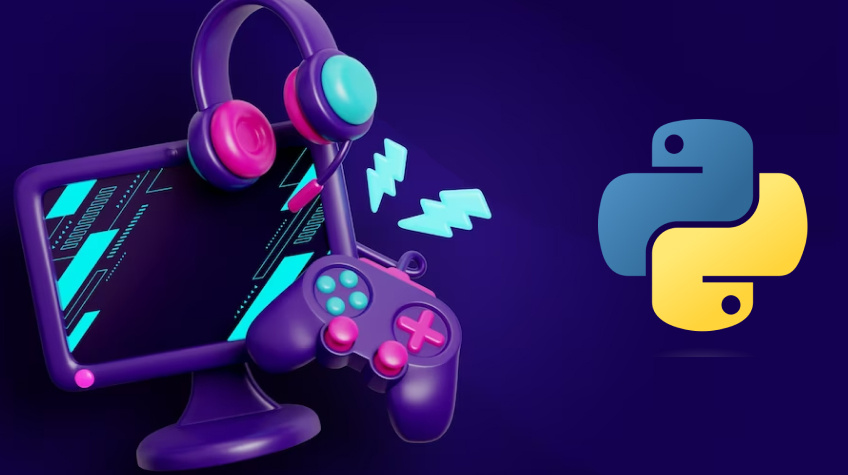
The digital landscape of gaming has witnessed a revolutionary metamorphosis over the past few years. From the days of simplistic 2D interfaces, we’ve catapulted into an era replete with fast-paced action games, intricate puzzle challenges, and life-like three-dimensional experiences that challenge the very fabric of reality.
This rapid evolution has necessitated an underpinning bedrock of strong programming support, and one language, in particular, has surfaced as a formidable ally – Python.
A Journey into Game Creation: Why Coding Matters
The motivation to develop a game can stem from varied sources. For some, it’s an innate passion that provides the impetus to understand the nitty-gritty of coding, with an ambition to etch their name in the expansive annals of the gaming world. Experienced coders see game creation as more than a mere job. It becomes a playground, a vast expanse to experiment, innovate, and express. It’s a realm where they can manipulate diverse computational facets, curating audio-visual masterpieces that gamers across the world can experience.
For such enthusiasts, Python has proven to be a formidable ally. And if they choose to seek it, guidance from a seasoned Python mentor can elevate their journey.
Choosing the Right Tool for Imagination
Before the exhilaration of gameplay comes the meticulous craftsmanship of game development. At this foundational stage, the choice of a programming language can make or break the realization of a developer’s vision. Amidst a galaxy of coding languages, Python emerges like a shining star, especially captivating for those who are relatively new to the world of coding.
While it might not be the universal first choice for game developers across the board, Python undeniably offers a suite of compelling advantages for aspiring game maestros. Let’s dive deeper into this Python saga.
The Compelling Case for Python in Game Development
Python, over the years, has steadily gained traction in the game development domain, evolving from a fringe player to a central protagonist. Its versatility, paired with robust capabilities, makes it an enticing choice for many. One of Python’s crowning jewels is its ability to seamlessly streamline and optimize an array of tasks that form the backbone of game creation. Armed with insights from a seasoned Python expert, developers can unlock avenues they never imagined.
Several facets highlight Python’s indispensability in game development
1. Syntax Simplicity: One of Python’s flagship features is its user-friendly syntax. The language is structured to ensure code readability, making it a breeze for developers to write and, more importantly, understand their scripts. This inherent clarity accelerates the development phase, and also significantly simplifies subsequent stages of debugging and introducing new features.
2. A Repository of Resources: Python’s utility extends beyond its basic structure. It offers a comprehensive set of frameworks and libraries tailor-made for game creation. Whether you’re envisioning a 2D classic or a 3D marvel, Python has you covered. Tools like Pyglet, Pygame, Pymunk, and Kivy stand ready to assist.
And for those feeling lost in this vast sea, a host of tutorials, carefully curated by Python veterans, await to guide them.
3. Embracing AI: A noteworthy trend in contemporary gaming is the integration of Artificial Intelligence (AI). For game developers aiming to fuse their narratives with Machine Learning and other advanced AI techniques, Python stands as a trusted companion. Specialized libraries such as TensorFlow, Keras, and Theano have been designed to ease this integration.
Moreover, Python’s ability to function seamlessly across different platforms, coupled with its open-source nature, further boosts its appeal, ensuring both functional and cost efficiencies.
4. Dynamic Typing Boon: Python’s dynamic typing feature is a game-changer. By obviating the need for pre-declared variables, it turbocharges processes like testing and prototyping, creating a conducive environment for unbridled creativity.
5. Fluidity in Object Orientation: Game development often mandates the creation and modification of objects. Python’s approach to object orientation is incredibly fluid and adaptable, ensuring developers can mold and shape their game elements with ease and precision.
Python and Gaming: A Dance of Evolution
Parallel to the skyrocketing trajectory of the gaming industry, Python too has been carving out a niche for itself. Today’s Python developers have at their fingertips a rich tapestry of game-centric libraries, enabling the crafting of truly avant-garde games. Beyond creation, Python is also the preferred tool for embedding scripting engines within pre-existing gaming frameworks.
Reflecting on the Python Legacy in Gaming
A host of iconic games today bear the indelible mark of Python. Spanning the gamut from novices to coding maestros, developers have, time and again, turned to Python to breathe life into their gaming stories. For those with a thirst for nuanced expertise in game development, diving into Python tutorials, meticulously crafted by seasoned mentors, can be an enlightening experience. In the grand canvas of gaming, Python is not merely a brush; it’s the vibrant palette that brings myriad visions to life.






